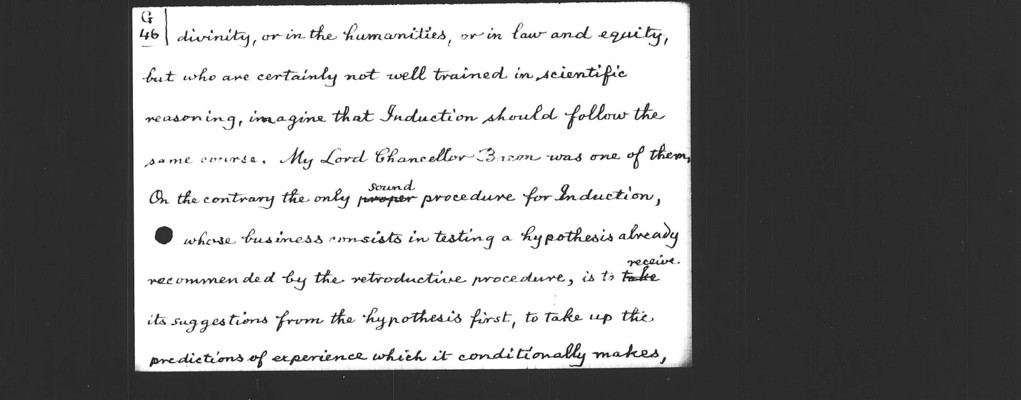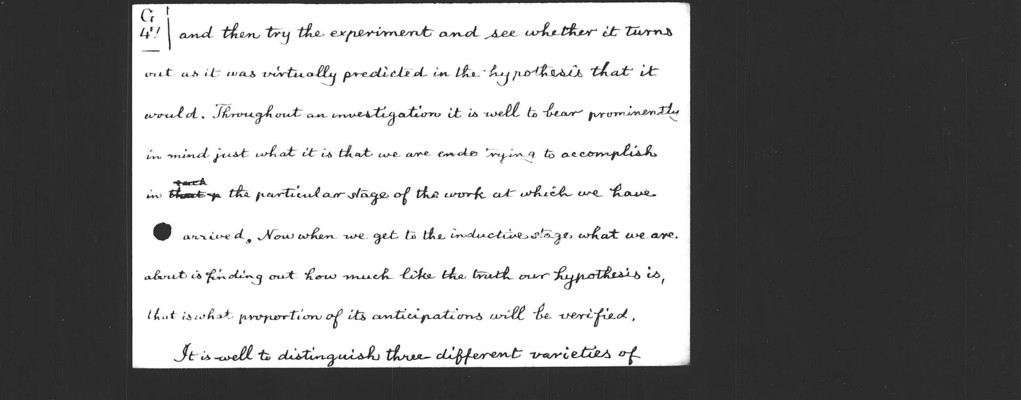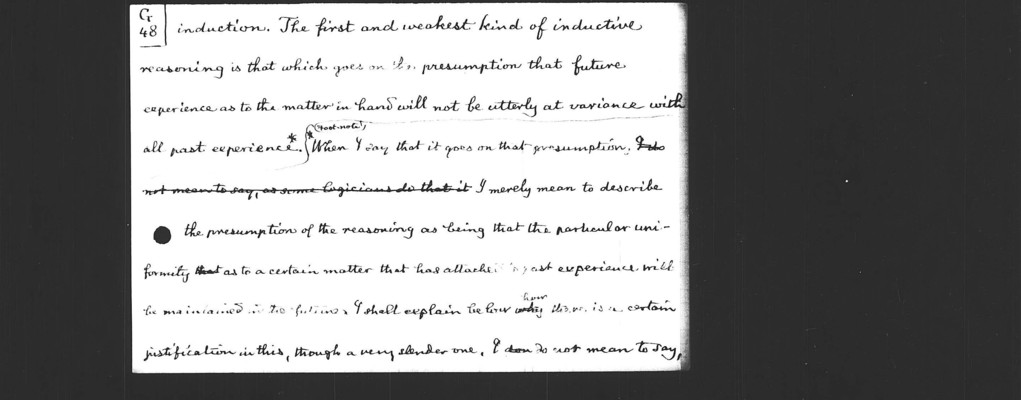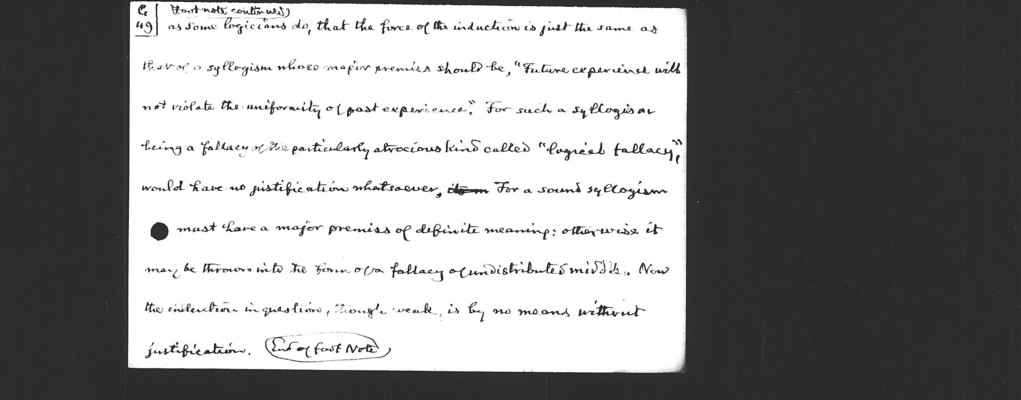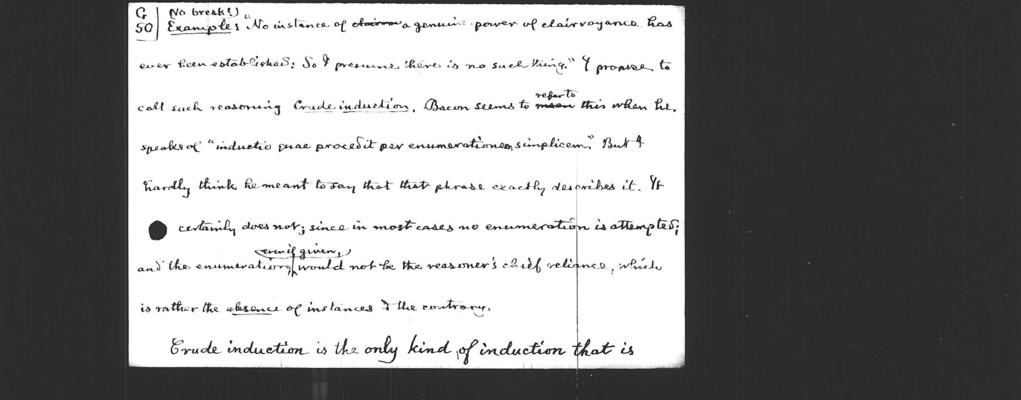Pages
46
G46
divinity, or in the humanities, or in law and equity, but who are certainly not well trained in scientific reasoning, imagine that Induction should follow the same course. My Lord Chancellor Bacon was one of them. On the contrary the only proper sound procedure for Induction, whose business consists in testing a hypothesis already recommended by the retroductive procedure, is to take receive its suggestions from the hypothesis first, to take up the predictions of experience which it conditionally makes,
47
G47
and then try the experiment and see whether it turns out as it was virtually predicted in the hypothesis that it would. Throughout an investigation it is well to bear prominently in mind just what it is that we are ende trying to accomplish in that each the particular stage of the work at which we have arrived. Now when we get to the inductive stage what we are about is finding out how much like the truth our hypothesis is, that is what proportion of its anticipations will be verified.
It is well to distinguish three different varieties of
48
G48
induction. The first and weakest kind of inductive reasoning is that which goes on the presumption that future experience as to the matter in hand will not be utterly at variance with all past experience.*
(Foot-note) *When I say that it goes on that presumption, I do not mean to say, as some logicians do that it I merely mean to describe the presumption of the reasoning as being that the particular uniformity that as to a certain matter that has attached to past experience will be maintained in the future. I shall explain below why how there is a certain justification in this, though a very slender one. I do not mean to say,
49
G49
Foot-note continued as some logicians do, that the force of the induction is just the same as that of a syllogism whose major premiss should be, "Future experience will not violate the uniformity of past experience." For such a syllogism being a fallacy of the particularly atrocious kind called "logical fallacy," would have no justification whatsoever. its m For a sound syllogism must have a major premiss of definite meaning: otherwise it may be thrown into the form of a fallacy of undistributed middle. Now the induction in question, though weak, is by no means without justification. End of foot Note
50
G50
(No break!) Example: "No instance of clairv a genuine power of clairvoyance has ever been established: So I presume there is no such thing." I propose to call such reasoning Crude induction. Bacon seems to mean refer to this when he speaks of "inductio quae procedit per enumerationes simplicem." But I hardly think he meant to say that that phrase exactly describes it. It certainly does not; since in most cases no enumeration is attempted; and the enumeration, even if given, would not be the reasoner's chief reliance, which is rather the absence of instances to the contrary.
Crude induction is the only kind of induction that is
